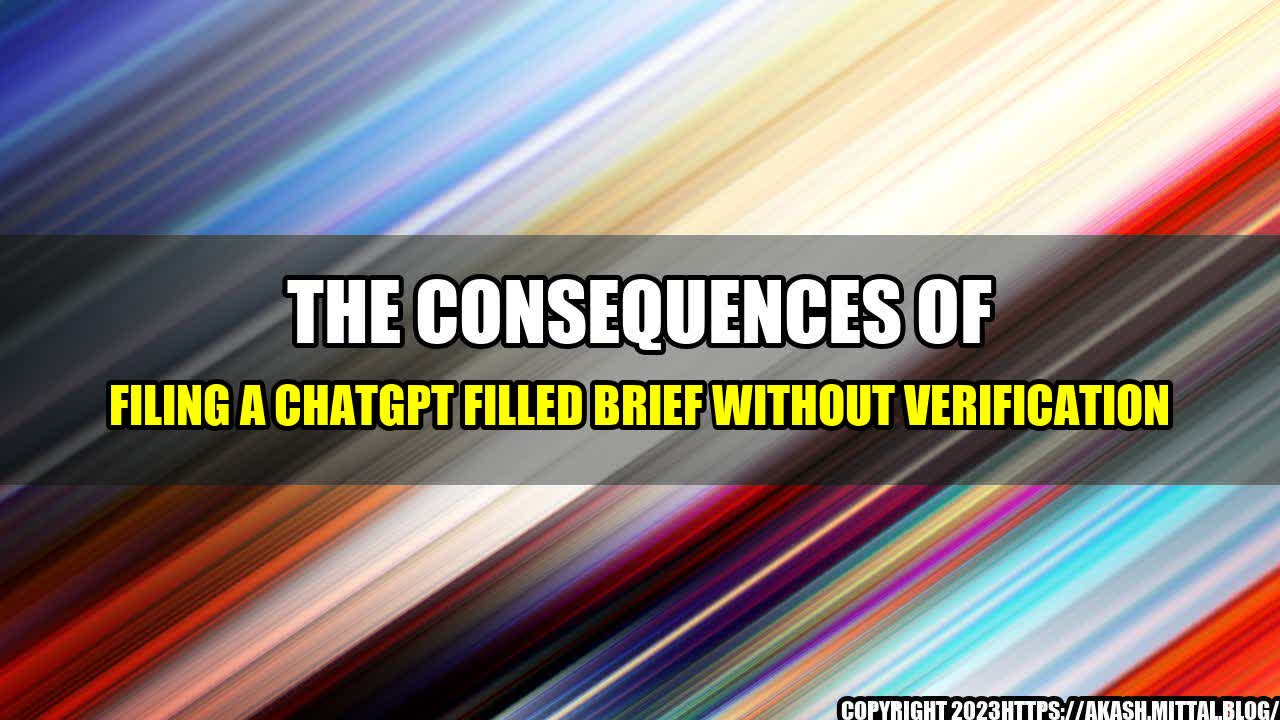As a legal representative, your primary responsibility is to ensure that your clients' best interests are protected. From formalizing contracts to legally disputing settlements, lawyers are expected to be meticulous in considering all sorts of legal aspects. However, there are times when even good lawyers can fail. And when they do, the outcome can be disastrous. In this article, we will explore a case where a lawyer faced sanctions due to filing a ChatGPT written brief without proper verification.
A Story of Misrepresentation and Sanctions
The story revolves around a lawyer from Massachusetts who was representing a client in an aviation dispute. The attorney pursued legal proceedings against the airline company, arguing that they had violated the customer's right to fly. So far, so good, right? The problem wasn't the lawsuit or the clams itself. Instead, the issue lies in how the brief was written.
Upon closer inspection, it was discovered that the client's brief wasn't written by the lawyer, but instead, it was generated using an AI-powered writing application - ChatGPT. While client briefs and other legal documents have been automated for a while now, this situation was different. The document was not scrutinized, reviewed, or even sighted properly by the lawyer before filing it. The consequences of this error were swift and severe.
The court examining the brief found it misleading and riddled with factual and grammatical errors. Furthermore, it was discovered that the ChatGPT used for automated writing had previous records of producing flawed and susceptible content. The court found that the lawyer's approach was unprofessional and that they had failed to ascertain the legitimacy of the information presented in the brief. As a result, the lawyer faced significant sanctions and was compelled to cover for the costs and damages incurred by the one-sided, dismissible lawsuit they'd filed.
The Repercussions of Filing a ChatGPT Written Brief without Verification
As the story recounts, the repercussions of filing a ChatGPT written brief without proper verification can be devastating for both the client and the lawyer. Here are some quantifiable repercussions of such an act.
- False statements and unwarranted claims in the brief can lead to dismissal of the lawsuit. The client not only loses their case but also faces financial losses due to the lawyer's misrepresentations.
- Unprofessional conduct by a lawyer will result in sanctions, which can lead to license suspensions and disciplinary actions against the attorney. This could invariably harm the entire future of the lawyer's career.
- The lawyer also risks the reputational damage of standing out in the legal community as an unprofessional practitioner.
- Additionally, it can seriously damage the trust between an attorney and their clients, leading to financial losses and loss of goodwill. It can potentially ruin the reputation and credibility of the attorney as well as the law firm they belong to.
The Importance of Verification and Professional Conduct
What can we learn from the story of this lawyer who faced sanctions after filling a ChatGPT written brief without verification? Here are some lessons that all legal practitioners should take note of:
- Legal documents, especially affidavits and crafted briefs, require thorough and constant review. Even if they use AI-powered chatbots or software to aid in drafting, lawyers must prioritize the review and double-check facts to ensure that they do not accidentally break the law or misrepresent case information.
- Never neglect to do background research concerning the software or services you employ. A legal representative should know how reliable and trustworthy the software they use is likely to be and if it could misrepresent their clients' interests.
- Don't take shortcuts to save time, especially if it means taking the risk of harming your client's legal interests and case outcome. As a legal practitioner, protecting a client's best interests and upholding professional responsibility should always be paramount.

Curated by Team Akash.Mittal.Blog
Share on Twitter Share on LinkedIn